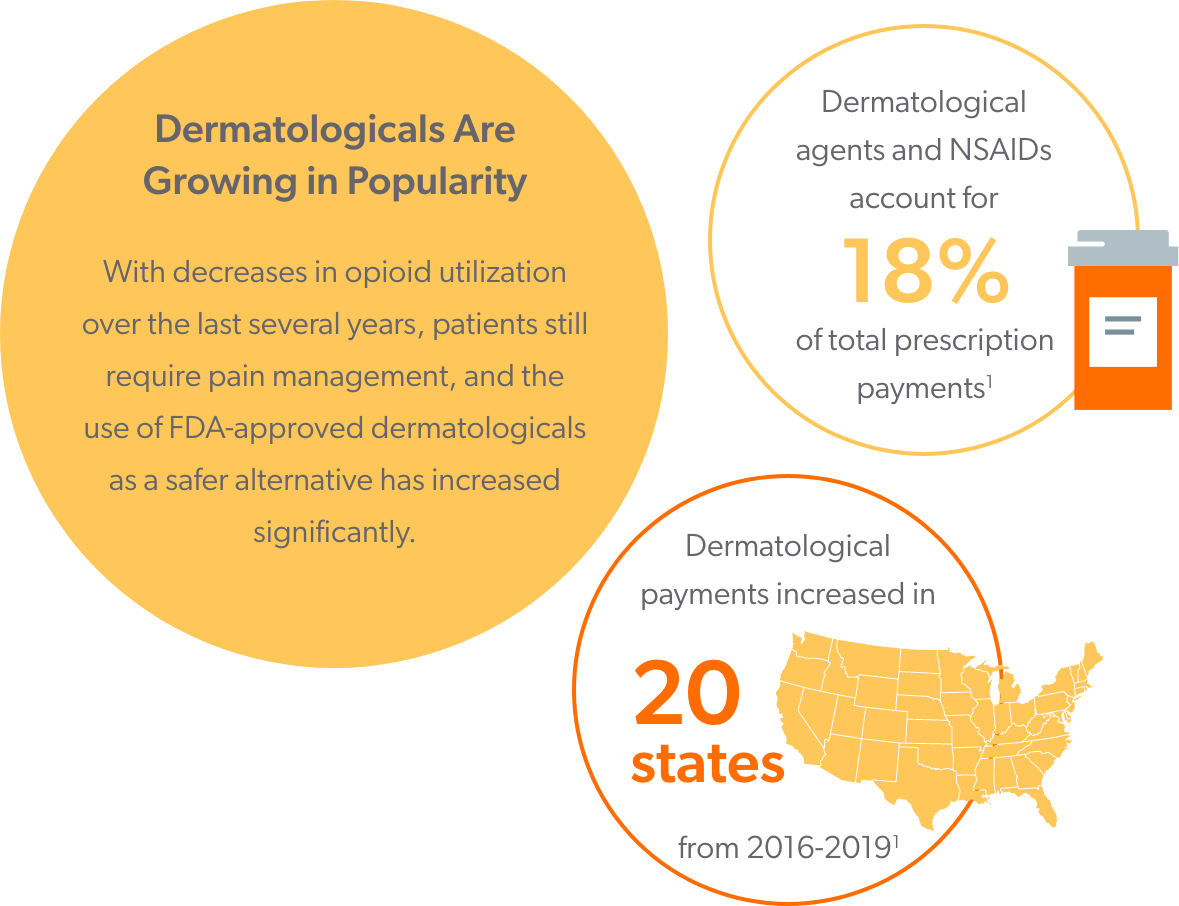
Diclofenac, the primary ingredient in Voltaren, is a nonsteroidal anti-inflammatory drug (NSAID) frequently used in workers’ comp for the treatment of pain due to osteoarthritis, particularly for the joints of the hands, knees, and feet. Voltaren has not been shown to work for strains, sprains, bruises or sports injuries.

Workers may develop various forms of arthritis due to cumulative or acute trauma, or an occupational injury could aggravate pre-existing inflammatory joint disease that may have been previously mild. Treatment for arthritic conditions could result in diclofenac medications appearing in your claims.
You may have seen many different diclofenac topicals in your claims – including drugs such as Pennsaid, Flector, and Solaraze – but among providers Voltaren gel is a preferred topical diclofenac agent for osteoarthritis because it uses the lowest strength of diclofenac.
And now Voltaren has grown even more in popularity as the drug no longer requires a prescription and can be purchased over the counter.

In early 2020, Voltaren was approved as a non-prescription, over-the-counter (OTC) drug through a process called prescription (Rx)-to-OTC switch.2
For a drug to switch to nonprescription status, data must demonstrate that the drug is safe and effective for use in self-medication as directed in proposed labeling without the supervision of a healthcare professional.
To clarify, this is not a new or altered version of Voltaren; the OTC version of Voltaren is the same as the previous FDA-approved prescription medication, with the same active ingredient, and the same warnings and precautions.
Since the FDA has deemed Voltaren as a safer and more effective drug for use in self-medication, providers who are prescribing other topical diclofenac products with higher concentrations of diclofenac (or their equivalent generics), may consider switching claimants to OTC diclofenac 1%, further increasing the popularity of Voltaren.
This can include replacing the following drugs with Voltaren:
Like any NSAID product, regardless of the type of formulation, diclofenac may cause an increased risk of:
These risks make it important for a prescriber to be aware of all medications the patient is using.
Prescribers may be reminded that prescriptions may still be written for OTC agents, allowing these medications to be processed through their PBM partners so that the medications remain visible in the injured worker’s claim history, facilitating the drug review process, ensuring appropriateness of therapy, and resulting in no out-of-pocket cost to the claimant.
And like any medication, Voltaren comes with its own unique warnings and precautions:
Voltaren is not for immediate relief and may take up to 7 days to work. Consumers should stop use and seek medical attention if their arthritis pain is not improved in 7 days or they need to use the product for more than 21 days.2
